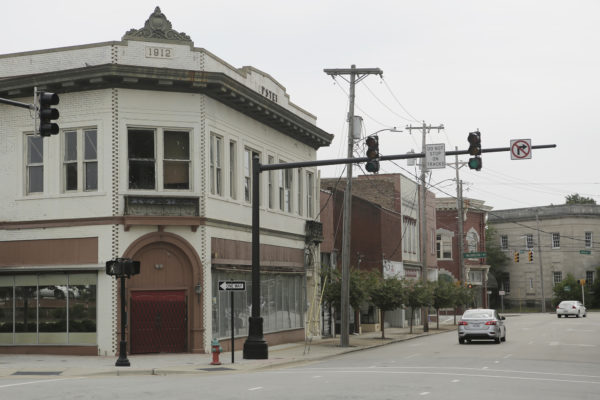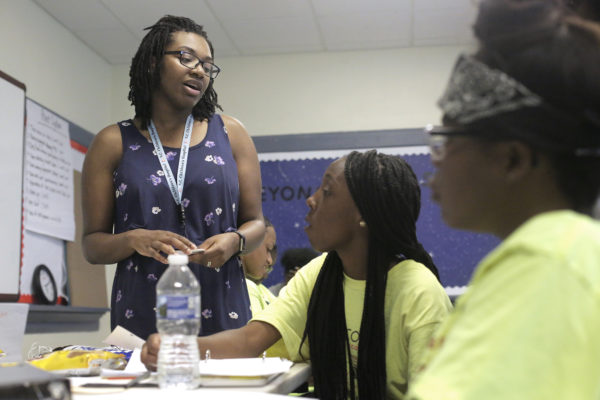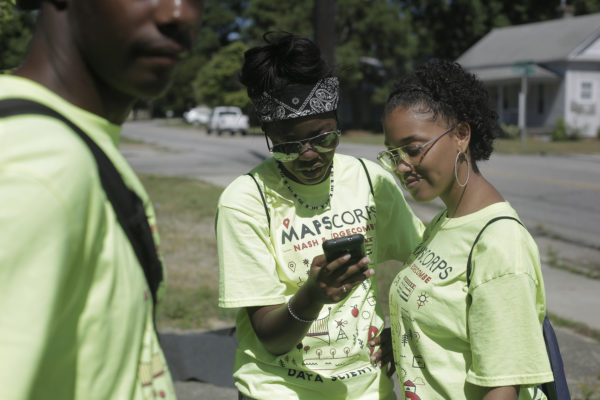A group of high school students start their summer mornings walking up and down business and residential streets of Rocky Mount. Their routes are dotted with stops to talk to business owners and curious residents wondering what kids in bright green t-shirts are doing all over town. As the teens make their rounds, they update business information into a phone app.
Over 800 miles away, students in Chicago start their day the same way, and have been doing so for almost 10 years.
Both parties work for MAPSCorps – a nonprofit that employs local teenagers to map businesses in their community. The information is updated every year, and the data are gathered on a free, online mapping program.
In 2008, Stacy Tessler Lindau was presented with a challenge. As part of the South Side Health & Vitality Studies (SSHVS) at the University of Chicago Health Initiative, Lindau was on a team working with leaders and residents of the city’s south side to improve health and economic strength in the area.
The group had three goals: involve local teens, adopt a broad definition of health to include factors like economic status, and produce data that the public can use.

Students began mapping businesses in central Rocky Mount, and have since expanded past the city borders into Nash and Edgecombe counties.
Community input steered SSHVS toward examining how to help businesses succeed in the region. By studying commercial data sets and public information like tax records and nonprofit registries, they quickly realized low-income communities were relatively invisible to mainstream online sources.
Results showed a 30 to 40 percent error rate – the percentage of businesses that were open but not represented online. Another 30 percent were closed but appeared to be open according to online sources.
Not being able to find a business by a simple internet search may seem like a small problem, but Lindau says it can have big consequences.
“That invisibility leads to waste of vital resources,” she explains. “It means people can’t get what they need even though it’s there, businesses and organizations can’t sustain themselves, and the public has more of a deficit-based view of their community.”
MAPSCorps has been their answer to fighting this lack of data. What started in 2009 as coverage of six communities in the south side of Chicago has evolved into students mapping two-thirds of the city. The program has also expanded to include New York City and Niagara Falls. Their site in Rocky Mount, in both Nash and Edgecombe counties, is the first rural community covered in the program.
A great match
Giselle Corbie-Smith, director of the UNC Center of Health Equity Research, had already been conducting research in the northeastern part of the state, and saw MAPSCorps as a perfect fit. Both the center and the project work with communities to emphasize the resources they have, not what they’re lacking, she says, and their methods rely on the community’s help in conducting research.
“When you have some of these challenges that are systemic you need the expertise of others,” says Nicole Robinson-Ezekwe, project coordinator for MAPSCorps Nash and Edgecombe. “We feel it’s best to do that with community input and not just that outsiders’ perspective.”
The program depends on organizations in Rocky Mount to give feedback on the most appropriate ways to conduct research in their community, and how to improve the dissemination of findings to the public.
“It’s a resource-intensive project and many critical people in the community put in a lot to make this work,” says Leah Frerichs, co-investigator and faculty mentor.
This is the third summer high school students from Rocky Mount have worked on the MAPSCorps project.
After a morning of mapping, they regroup for the positive youth development program – focusing on personal and professional development to build on leadership, communication, and team-building skills.
This time is also dedicated to the students developing their own research projects, which they present in a public symposium at the end of the summer.
“They conduct a social science research project that pertains to an issue or challenge that’s going on in their community and they tie it into the data they collect,” Robinson-Ezekwe explains.

Nicole Robinson-Ezekwe gives O’Tasia Brinkley advice on her research project about crime near convenience stores.
Students have been investigating a variety of community issues like obesity, criminal activity, and barriers to public transportation.
Frerichs says the goal of this work is two-fold.
“We want them to see the importance of data, of science, of research, and that they can learn about these different opportunities for their own career development,” she explains.
She hopes their work inspires students to maintain progress in Rocky Mount. “The whole point is to really help them grow as leaders so they can continue to contribute to their community.”


